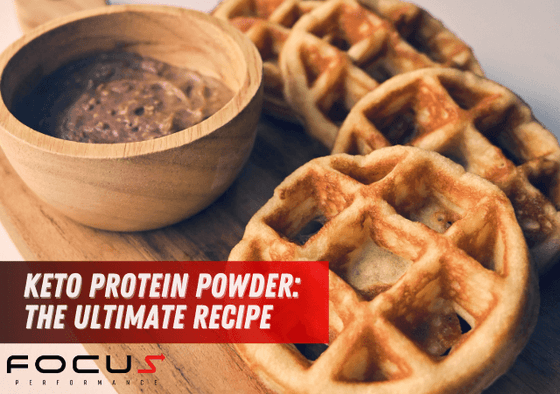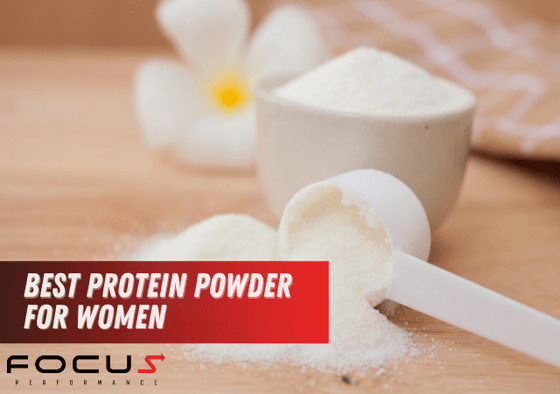
Sports nutrition can be a bit of a minefield; between the low-quality fillers, hormones and even banned substances hidden away in some protein powders and pre-workouts, how do you know which supplements to take?
Which supplements are going to help you get ripped, lose weight or add lean, high-quality muscle, and which ones are just going to be a waste of money? We’ve rounded up some of the most popular supplements, to outline some of the major benefits, and to compare them with similar products, so that when it comes to supplements, you can shop with confidence.

If you’re new to the world of exercise, you’ve probably noticed a lot people walking around with shaker bottles, filled with all sorts of powders, milks and juices, smelling like a fruit stand. Chances are, if you ask what it is they’re chugging, you’ll get one of five answers: protein, BCAAs, pre-workout, creatine, or some alchemist’s mixture of all of them.
Everyone has their own favourite brands, and they’ll swear that they’ve tried every other shake going.
Sports supplements come in three main categories:
Pre-workout: Usually taken in the hour before, or right up to starting a workout. Pre-workout is usually based on some kind of energy booster like caffeine or taurine, but can include other, more complex blood and muscle igniters like beta-alanine. Pre-workout is designed to get you pumped up and ready to work out. Which it usually does, pretty quickly.
Intra or during-workout: It’s not uncommon for some people – usually competitive athletes or those who train several times a day – to take some kind of supplement during their workout. Usually, it’s something like BCAAs, or branched-chain amino acids, which are essentially simple proteins, that can feed muscles quickly and prevent them from breaking down as much.
Post-workout: Post-workout supplements include things like all the different kinds of protein (whey protein, hemp protein, soy and rice proteins, etc.) You’ll also find countless cocktails of powders here, too, some aimed at building muscle and burning fat, others focused on adding as much mass as possible. You might see protein powders mixed with amino acids, or dextrose, a weight-gain supplement that’s almost entirely carbohydrates.
If you’re working out regularly (several times a week), alongside a balanced and varied diet, the answer is almost certainly yes. A solid diet and plenty of sleep are essential to performing well and feeling at your best, but if you’re looking to make significant gains in strength and muscle, you’ll probably need to supplement with protein.
The protein you get from supplements is essentially the same as that found in your food, only with fewer calories. There are different kinds of protein from different sources, but they all have the same goal – to rebuild muscles after exercise.

The most popular protein is whey protein. It’s made from cow’s milk, and is the one with the highest protein:weight ratio. Whey protein comes in a few different forms, most notably ‘concentrate’ and ‘isolate.’ Which one you choose depends on your budget and goals.
Whey protein concentrate is less filtered, and is made when dried milk whey is turned into a powder. It contains several amino acids and some carbohydrates, but also lactose, so if you’re sensitive, it might be best to avoid this one.
Whey protein isolate is whey protein concentrate that’s been filtered. It’s higher in protein, but lower in amino acids and carbohydrates. It also has less lactose.
Focus Performance Grass Fed Whey is hormone-free (that’s a good thing), sweetened with stevia (as opposed to artificial sugar) and is made using milk from grass-fed cows. Grass-fed (as opposed to grain-fed) milk contains more nutrients, and is less prone to causing inflammation.

Allergic to milk, or have a lactose intolerance? Whey protein isn’t the only option, and in fact, although some alternatives might appear to be lower in protein, they offer other benefits which are worth bearing in mind.
Focus Performance Hemp Pro is a hemp protein with added vitamins and minerals, that’s sweetened with a type of leaf called stevia. Hemp protein is made from the hemp plant, and while it belongs to the same family as marijuana, it doesn’t have the appropriate psychoactives to get you high – sorry.
Hemp protein may be lower in protein than its whey counterpart, but, the protein in hemp is more bioavailable, allowing your body to use more of it, more efficiently. It also contains all nine essential amino acids, crucial for keeping every one of your body’s systems in check, from your biceps to your brain. Essential amino acids are labelled as essential because they can’t be made inside the body; you have to get them through your diet.
The serving size will always be indicated on whichever protein you buy. As for how many times a day, that depends on what kind of training you’re doing, and how often. If you’re working out once a day, one protein shake straight after your work should be fine. If you want to add in another shake at breakfast, or with lunch or dinner, that might also be beneficial.
If you want to get bigger, stronger, more explosive, creatine is one of the most effective supplements you can take. As the most studied sports supplement in the world, creatine is safe, natural and it works.
Creatine is a naturally-occuring substance found in meat and fish. Your body also makes it small amounts inside the liver, kidneys and pancreas, but not at high enough levels to make a huge difference to your performance.
In short, all creatine, whether you get from food, supplements or your own organs, is transported to your muscles, where it’s turned into phosphocreatine, a storage reservoir for a substance called ATP. ATP contributes to rapid energy release and muscle contraction, and the more of it you have, the more explosive you’ll be in the gym.
Creatine tends to add a fair amount of bulk (initially in the form of water weight), so it’s important to bear that in mind when taking it. If you just want to get bigger, it’s great, but if you’re a runner, you might want to consider how much creatine you take.
In terms of how much creatine you should take, you might read about cycling and loading, and while it’s perfectly fine to do either of those, it’s usually not necessary. Creatine is completely safe, if you stick to the recommended guidelines on the packaging. You can take it every day along with your protein shake, to keep your levels topped up.
Branched-chain amino acids are the building blocks of muscle, and one of the first sources of energy our body uses during exercise. That’s why you’ll see some people drinking BCAAs during their workouts – to preserve muscle, prevent break down and speed up recovery.

Some people use BCAAs as a kind of maintenance supplement, to keep their muscles stores topped up between workouts, and because you’ll breaking muscle down less, you won’t be as sore during recovery.
Like creatine, BCAAs are incredibly safe and effective. You can mix them with your protein, or take them on their own. Taking just BCAAs is a decent option if you really don’t like milky protein shakes; BCAAs mix into something more like fruit cordial.
Check out Focus Performance Accelerate for a super supplement that contains BCAA, Creatine, Glutamine and more.
A pre-workout isn’t strictly necessary, and once you get going, you’ll probably be fine, but for that added boost, a supplement can be useful.
Most pre-workout supplements work by increasing blood flow to your muscles and making you feel more alert. They contain stimulants like caffeine, taurine and guarana, as well as things like beta-alanine.
Beta-alanine is sometimes sold as a separate supplement, and is famous for its muscle pump-giving abilities. Pre-workout supplements are generally very safe, although it’s not advisable to take them several times a day.
A multivitamin containing all of the usual suspects like vitamin C, E, K and minerals like iron, can be useful in keeping your nutrient levels topped up, but they shouldn’t be used a substitute for a healthy diet.
If there’s one vitamin that you might want to consider before any others, it’s vitamin D. The body can’t make vitamin D, and the main source is sunlight. If you live somewhere where it’s overcast for a large part of the year, or where the winters are long, you might become slightly deficient in vitamin D.
Vitamin D is important for not just bone health, but a range of other metabolic reactions, and if you’re looking to make the most of your performance at the gym, you really can’t be doing without it.
Those are the main supplements you may want to consider when starting out at the gym. Combine them with a varied diet, high in protein, fats, vegetables and fruit, along with plenty of sleep, and you’ll be making progress in no time.
Despite the benefits we’ve learned about protein powders, not all of them are keto-friendly. Just like any product for people on a low-carb diet, you need to read the label closely to make sure you’re not consuming added carbs and sugars.


Scott Reid
Author
Scott Reid is a 2 x Britain’s Strongest Man U105kg winner (2007 & 2008) and IFSA World's Strongest Man U105kg Competitor. He is an expert in strength and conditioning and also coaches functional nutrition. Scott’s passion for understanding the human body and how to optimise every aspect of it has driven him to study under legends such as Paul Chek. Scott now coaches MMA Athletes, Strongmen and Bodybuilders to name but a few, helping them to implement a well structured diet and become more powerful, explosive versions of themselves.